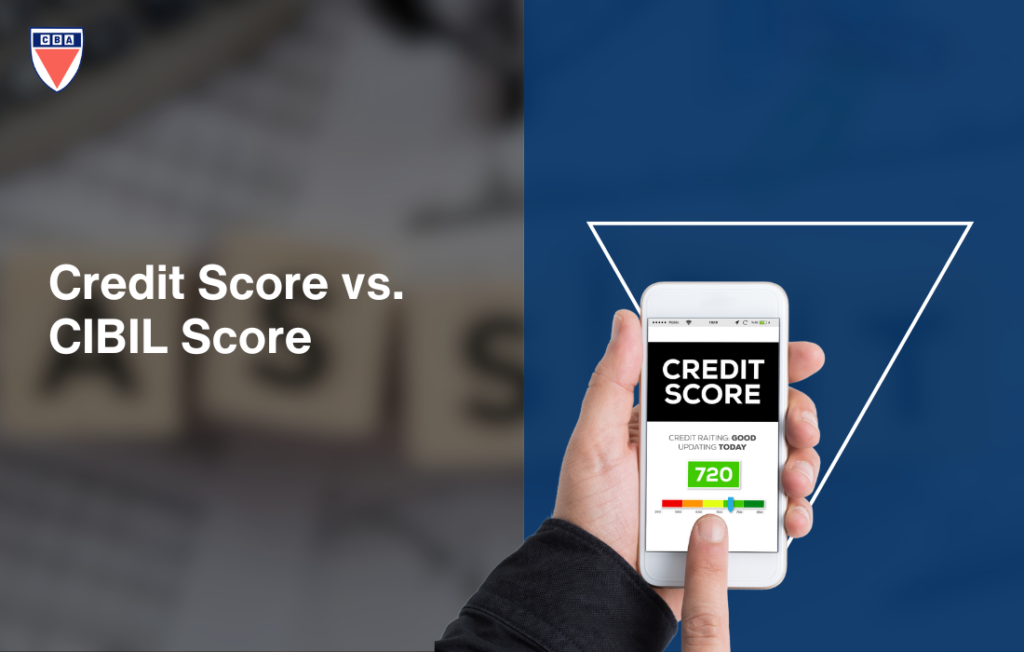Introduction
Ever wonder why your loan application gets approved or denied? It all comes down to your credit score. But if you’re in India, you’ve likely heard a lot about the CIBIL score too. So, how are they different? And why should you care? Understanding the nuances between a general credit score and a CIBIL score can make a world of difference in managing your financial health.
Take a moment to think about this: When was the last time you checked your credit score? Was it through CIBIL or another bureau? This blog will dig deeper into what sets these scores apart and help you navigate the fine print most people overlook. Let’s go beyond the basics and explore the real impact these scores have on your financial decisions.
Understanding Credit Scores: A Global Perspective
Before diving into the specifics of a CIBIL score, let’s talk about credit scores on a global scale. Ever wondered how your credit score is calculated? It’s more than just a number—it’s a reflection of your financial habits. Globally, credit scores are the foundation on which banks and lenders decide if you’re worth the risk.
Take the FICO score in the U.S., for example. This score ranges from 300 to 850 and is calculated using factors like payment history, amount of debt, and length of credit history. Does this sound familiar to you? Maybe because similar factors are used worldwide, but the models vary. In the U.S., FICO is king, while in other countries, you’ll see agencies like Equifax or Experian stepping up.
But here’s something most people don’t realize: Credit scores aren’t universal. The way they’re calculated can vary widely depending on the country. In some places, debt-to-income ratio is factored in heavily, while in others, like India, it’s more about payment history. Does this mean your credit score in India won’t help if you move abroad? We’ll explore that later, but for now, just know that while credit scores are a global concept, they’re not one-size-fits-all.
What Is a CIBIL Score? The India-specific Credit Score System
You might have heard the term “CIBIL score” quite a bit, but what exactly does it mean? Think about your last loan or credit card application—was your CIBIL score the deciding factor? In India, it likely was. The CIBIL score is a credit score calculated by the Credit Information Bureau India Limited (CIBIL), one of the four major credit bureaus in the country.
But here’s the thing: Did you know CIBIL isn’t the only bureau calculating your score in India? Alongside CIBIL, there are other credit bureaus like Equifax, Experian, and CRIF High Mark. Each of these agencies collects financial data and uses it to evaluate your creditworthiness. While CIBIL is the most commonly used, it’s always good to be aware that other credit bureaus can give slightly different scores.
So, why does the CIBIL score matter so much? When you apply for a loan or credit card, most Indian lenders look at your CIBIL score first. They rely on this number to assess whether you’re likely to repay the loan on time. A score above 750 is generally considered good, but lenders can interpret this differently depending on their own criteria.
Credit Score vs. CIBIL Score: What Most Comparisons Miss
By now, you’re probably thinking, “Okay, so a CIBIL score is just a type of credit score, right?” Yes, but there’s more to it. Have you ever compared your CIBIL score with your credit score from another bureau and noticed a difference? That’s because each bureau uses slightly different algorithms to calculate your score.
While many articles focus on how the CIBIL score is just a type of credit score, here’s what they often leave out: The bureau-specific impact. What does this mean for you? Well, CIBIL bases its score on the data it has collected from your financial history, but other bureaus—like Experian—might weigh certain factors differently.
For example, let’s say you have two loans and a credit card. CIBIL might focus heavily on how consistently you’ve paid off those loans, while FICO (in the U.S.) might also take into account your debt-to-income ratio. Does this explain why your scores may vary across bureaus? Absolutely. And guess what? Lenders may also interpret these scores differently, depending on which bureau they trust the most. So, your CIBIL score could be solid, but another bureau’s score could impact your approval.
CIBIL Score vs. Other Credit Bureaus in India: The Hidden Differences
So now we’ve established that CIBIL is just one player in the game. But what about the others? Have you ever wondered why your credit score might differ across different bureaus in India? The reason is simple: each credit bureau uses its own formula and data to assess your creditworthiness.
While the CIBIL score is the most commonly referenced, bureaus like Equifax, Experian, and CRIF High Mark also provide scores. Does this mean they all have access to the same data? Not necessarily. Some lenders may report your information to only one or two bureaus, which leads to discrepancies in your credit score.
This brings up an important point: What happens if your CIBIL score looks great, but your score from another bureau is lower? Unfortunately, this can impact your borrowing power, as some lenders may rely more on one bureau over the others. If you’re applying for a loan, it’s worth checking your credit score across all bureaus to avoid surprises.
Factors Affecting Credit Scores Globally vs. CIBIL Scores: The Deeper Comparison
Here’s a deeper look at the factors affecting credit scores globally and how they compare with the factors influencing CIBIL scores in India. Both systems aim to assess creditworthiness, but the specific factors they weigh and their significance can vary. Let’s break down these differences in a clear comparison format.
| Factor | Global Credit Scores (e.g., FICO) | CIBIL Score (India) |
| Payment History | Major factor; late payments, defaults, and delinquencies have a significant impact on FICO scores. | Highly important; CIBIL heavily emphasizes timely repayments. Even one missed payment can have a large negative effect. |
| Credit Utilization Ratio | Important; using more than 30% of your available credit limit can lower your FICO score. | Crucial for CIBIL; high credit card utilization (>30%) significantly reduces your CIBIL score, even if payments are timely. |
| Length of Credit History | The longer your credit history, the better. Older accounts positively impact the FICO score. | Important but not as heavily weighted as payment history and credit utilization. Still, a longer credit history helps. |
| Types of Credit (Credit Mix) | A diverse mix of credit (credit cards, loans, mortgages) is favored in global models like FICO. | Less emphasized than global models; CIBIL focuses more on your credit behavior than on the diversity of credit types. |
| Debt-to-Income Ratio | Significant; this ratio measures the amount of debt you have compared to your income, affecting your global credit score. | Not directly factored into the CIBIL score calculation. CIBIL focuses more on credit activity than your income levels. |
| New Credit Inquiries | Applying for too much new credit in a short time negatively impacts FICO scores. Hard inquiries stay on your report for two years. | CIBIL similarly penalizes frequent loan or credit applications, which are recorded as hard inquiries, lowering your score. |
| Credit Card Usage | Credit card balances and utilization impact FICO scores but are balanced with other factors like debt-to-income ratio. | High credit card utilization is heavily penalized in CIBIL, even more so than in global models. Keeping balances low is critical. |
| Debt Settlement | Affects global credit scores negatively, as settling for less than the full debt is seen as riskier behavior. | Similarly, debt settlement in India affects CIBIL scores significantly, indicating an inability to repay the full loan amount. |
| Income Level | Directly considered in some global credit models, as higher income can mitigate the impact of debt. | Not included in CIBIL’s calculation; it focuses solely on credit behavior, irrespective of your income level. |
| Public Records (Bankruptcies, Foreclosures) | Public records, like bankruptcies or foreclosures, have a severe negative impact on FICO and other global credit scores. | Similarly, in CIBIL, public records like bankruptcy can drastically lower your score, making credit approvals more difficult. |
| Number of Open Accounts | FICO scores consider the total number of open credit accounts, with a good balance being favorable. | CIBIL also considers the number of open accounts, but this is less significant than factors like payment history and credit utilization. |
Key Takeaways:
- Payment History and Credit Utilization are critical in both systems, but CIBIL places slightly more emphasis on credit utilization than global models like FICO.
- Global credit scores often take into account broader financial factors like debt-to-income ratio and income level, which aren’t part of CIBIL’s scoring process.
- CIBIL focuses on how you manage your existing credit, especially credit card usage, while global credit scores reward a more diversified credit profile and financial health.
By understanding these differences, you can adjust your financial strategies accordingly to boost your credit score, no matter where you are.
Why the Credit Bureau Used Matters: Hidden Implications for Borrowers
Here’s something most people don’t think about: Have you ever considered how the specific credit bureau used by your lender could affect your loan approval? It’s true. In India, many lenders rely on the CIBIL score, but some might favor scores from Equifax or Experian. This could lead to different borrowing experiences depending on which score they look at.
Imagine this scenario: Your CIBIL score is high, but the lender checks your score with another bureau, and it’s lower. This discrepancy can impact your loan eligibility or the interest rates you’re offered. The key takeaway here is to be aware of how different bureaus can affect your borrowing potential.
Credit Scores in International Contexts: What Happens to Your CIBIL Score When You Move Abroad?
Ever wondered what happens to your CIBIL score if you relocate to another country? Let’s say you move to the U.S. or the U.K.—do your financial habits in India carry over? The short answer is: not exactly. While your CIBIL score remains valid in India, it doesn’t automatically transfer to international credit systems like FICO in the U.S.
So, if you’re moving abroad, it’s essential to know that building credit in your new country is like starting from scratch. Banks and lenders in places like the U.S. and U.K. typically won’t consider your CIBIL score when deciding on your loan eligibility. You’ll need to build a new credit profile, starting with opening local bank accounts, using local credit cards, and making timely payments.
But here’s a catch: What if you need a loan back in India while living abroad? Luckily, your CIBIL score remains active, meaning lenders in India can still use your credit history to assess your application. It’s crucial, however, to maintain healthy credit habits in both countries, as your financial decisions can impact opportunities on either side of the globe.
Fixing Your Credit Score vs. Fixing Your CIBIL Score: Unique Approaches
Improving your credit score or CIBIL score is essential if you’re looking for better loan terms, higher credit limits, or simply more favorable financial opportunities. But here’s the thing: fixing a credit score globally—like a FICO score in the U.S.—and fixing your CIBIL score in India are two similar yet distinct processes. Although both score types assess your creditworthiness, the strategies to improve them can differ due to differences in algorithms, regional banking practices, and scoring emphasis.
Let’s dive into the unique approaches for each system and uncover some myths, quick fixes, and tips to enhance your score effectively.
Ø Understanding Global Credit Scores vs. CIBIL Scores
Before diving into the strategies, it’s important to understand how global credit scoring systems, like FICO or Experian, differ from CIBIL:
- Global Credit Scores (e.g., FICO): These scores often factor in a broad spectrum of your financial behavior. In addition to payment history, they look at debt-to-income ratios, length of credit history, new credit inquiries, and more. The FICO score, for instance, places heavy weight on a mix of credit types and timely payments, offering a well-rounded picture of your financial health.
- CIBIL Score: The CIBIL score is India’s specific credit score, primarily focusing on your credit usage, payment history, and the types of credit you’ve taken. However, unlike FICO, debt-to-income ratios aren’t a big part of the score calculation. CIBIL’s algorithm places more emphasis on how much credit you are using and how often you repay it on time.
Ø What Works Globally Might Not Work for CIBIL
So, can the same strategies be applied to both systems? Not exactly. While some universal tips—like paying off debts and keeping balances low—will improve both scores, there are some notable differences when you’re targeting your CIBIL score versus a global score like FICO. Let’s break this down:
1. Timely Repayments Are Key Everywhere—But More Crucial for CIBIL
In any credit system, paying your bills on time is essential, but CIBIL places a special emphasis on timely repayment. If you miss a single payment, your CIBIL score could take a bigger hit than it would under FICO.
What can you do?
- Set up automatic payments for your credit cards, loans, and other debt-related obligations to ensure you never miss a due date.
- If you miss a payment, don’t panic. Make the payment as soon as possible. While the damage is done, consistently paying on time afterward can help your score recover.
2. Credit Utilization Ratios: A Global Rule, but Heavily Weighted by CIBIL
Both global credit scores and CIBIL score use credit utilization (i.e., the amount of credit you use compared to your credit limit) as a factor. However, in CIBIL’s case, maintaining a low credit utilization ratio (below 30%) can have a significant impact on improving your score. Maxing out your credit cards may impact your CIBIL score more than it does in systems like FICO.
What can you do?
- Keep your credit card balances low, aiming to use less than 30% of your available credit limit. If your credit limit is ₹1 lakh, keep your outstanding balance under ₹30,000.
- Ask for a credit limit increase if you’re regularly using a large portion of your available credit. This will lower your utilization ratio without you having to cut back on spending.
3. Credit History Length: Global Systems Favor Long Histories, CIBIL Is Lenient
In global credit scoring models like FICO, the length of your credit history can play a significant role in determining your score. Longer histories, with established credit lines, are favored. However, in CIBIL’s case, while credit history length matters, it isn’t as crucial as other factors like credit utilization and payment behavior.
What can you do?
- For both global and CIBIL scores, avoid closing old credit accounts. Keeping long-standing accounts active—even if you aren’t using them frequently—can boost your credit history.
- Be strategic when applying for new credit. Multiple new credit inquiries can lower your score, so avoid opening too many new accounts in a short period.
4. Types of Credit: A Mix Is Better Globally, CIBIL Prioritizes Credit Behavior
In the global credit score systems, having a mix of credit types (like mortgages, car loans, and credit cards) can help improve your score by showing you can manage multiple forms of credit. CIBIL, on the other hand, doesn’t weigh credit mix as heavily; it’s more focused on how you handle existing loans and whether you’re regularly taking on too much debt.
What can you do?
- Globally, aim for a diverse credit portfolio—if you only have a credit card, consider a small loan to add variety.
- In India, focus more on managing your current debts responsibly rather than adding new forms of credit to diversify your portfolio.
Myths About Quick Fixes: What Doesn’t Work?
It’s easy to come across myths about quick fixes when it comes to improving your credit or CIBIL score. Unfortunately, there are no shortcuts, and certain “fixes” can actually hurt your score more than help.
- Closing old accounts to boost your score? Not a good idea. Keeping old accounts open strengthens your credit history.
- Disputing every negative entry won’t erase your debts. While you can dispute errors, make sure you aren’t attempting to remove legitimate debts from your report.
- Paying off a loan early might sound like a good idea, but in some cases, keeping an open line of credit and making regular payments can positively impact your score over time.
Specific Tips to Improve Your CIBIL Score
While global credit systems and CIBIL have overlapping strategies for score improvement, here are a few India-specific tips:
- Limit loan applications: In India, making too many applications for loans or credit cards in a short period can negatively affect your CIBIL score. Each application is recorded as a “hard inquiry,” which can lower your score.
- Focus on credit card usage: Since CIBIL weighs credit utilization heavily, manage your credit card balance carefully. Try to pay off your full balance each month rather than just the minimum due.
- Avoid settling loans: If you settle a loan for less than the full amount, it can stay on your CIBIL report and lower your score. Instead, focus on repaying the full loan amount, even if it takes longer.
Future of Credit Scoring in India: What Could Replace CIBIL?
Have you ever thought about what credit scoring might look like in the future? With emerging technologies like AI and blockchain, the credit scoring landscape is bound to change. In fact, several alternative credit scoring models are already in the works, potentially challenging CIBIL’s dominance in India.
For instance, digital payment histories, such as records from UPI or mobile wallets like Paytm, could play a bigger role in determining your creditworthiness. What if your utility bills, rent payments, or mobile payments were factored into your credit score? This could create a more comprehensive picture of your financial behavior.
Additionally, as more people start relying on these digital tools, other credit bureaus like Equifax and Experian could gain ground and eventually complement or even replace CIBIL in certain scenarios. The future of credit scoring in India might not be just about one score or bureau—it could involve a mix of traditional and alternative data sources.
Conclusion
By now, you’ve gained a deeper understanding of the differences between credit scores and CIBIL scores—and how these variations can impact your financial decisions. What’s your key takeaway? Whether you’re applying for a loan in India or moving abroad, knowing how your credit is assessed is essential for maintaining financial health.
Are you ready to take control of your credit? Focus on the right habits, whether you’re looking to improve your CIBIL score or your global credit score. Remember, being informed about the nuances of different credit bureaus and their scoring methods can give you a big advantage when it comes to borrowing power and financial stability.






